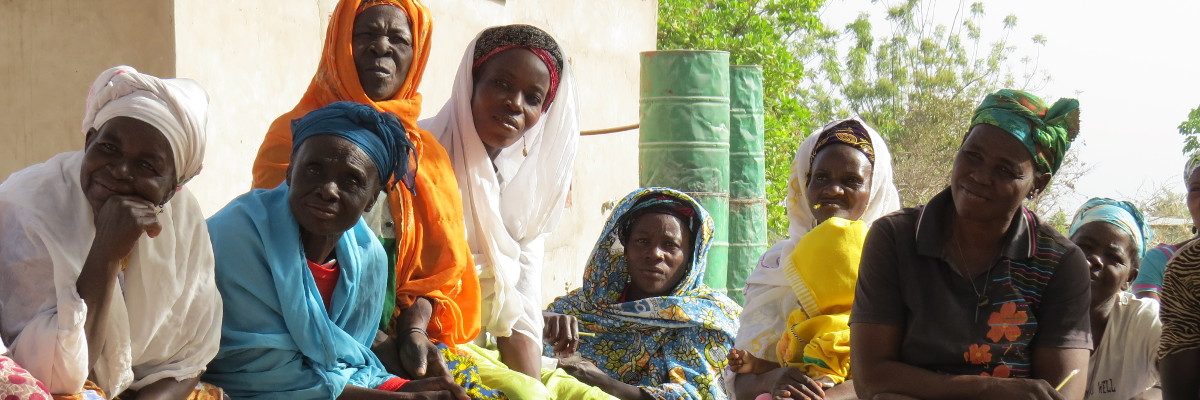A day of training in Burkina Faso
It’s 8.25am in Fada N’Gourma in the East of Burkina Faso. Little by little, the members of the ‘Tamôuabou’ group (which means common agreement in the local Gourmantchema language) arrive from across the fields and sit in a circle on benches arranged under a giant mango tree. A loan officer and the trainer from the ABF microfinance institution (Association Base Fandima), which is supported by EdM, have already arrived and wait patiently for the start of proceedings.
Once customary greetings are over, the loan officer opens the meeting with a role call and the trainer gets ready to get going. In today’s training plan, the topic of discussion is ‘reinvesting savings in business’. To tackle it, the trainer is equipped with a booklet from the training manual which EdM provides for its partners, a tool that contains the training outline and illustrated material made up of 9 cards prepared by a Burkinabe artist.
Whilst the loan officer carries out his financial duties (loan recovery, collecting savings), the trainer introduces the topic of the day with a brainstorming session on the question of saving. What indeed is saving? Why save? The audience is already familiar with the topic because all new client groups are made to take a training module on the importance of saving. The trainer cuts straight to the chase of the matter and asks those present what means they have to get cash to invest in their business. Every time a participant gives one of 4 expected answers, the trainer hands him/her the corresponding card (credit, help from the family, selling of assets, savings) and asks him to stand before the group with his card. Once all 4 answers have been given, he asks what obstacles exist to each method (respectively: interest rate, family pressure, the unavailability of assets, and the lack of savings when unplanned events occur). Again, once each obstacle is identified, the right card is given to the participant, who is in turn asked to stand in front of his peers with the card in hand.
Children and passers-by look on and try to listen, intrigued by this group of adults playing cards.
Once the obstacles have been identified for each fundraising method, the trainer asks if corresponding solutions can be found. After some discussion, participants agree that there are no real solutions, except for savings, which, just as one can do with a budget, can be compartmentalised (one part can go towards supporting the family, the other towards the business). An exchange of experience on using savings in business follows. Discussions are vibrant and all members listen attentively and share their experience on the issue.
An hour and a half later, the meeting has come to an end. The trainer asks participants to summarise key points from the session and the loan officer focuses on the financial transactions he has to carry out. The audience gives a round of applause, and after a closing roll call and agreeing to meet again the following week, they leave and head off on their own separate ways.
At ABF, 17 financial training modules and 3 social training modules are currently available. In 2014, there are plans to develop further financial training modules. A social training manual is also being developed. It will contain several modules on subjects linked to health or social issues (meningitis, water-borne diseases, skin depigmentation, women’s rights…)

